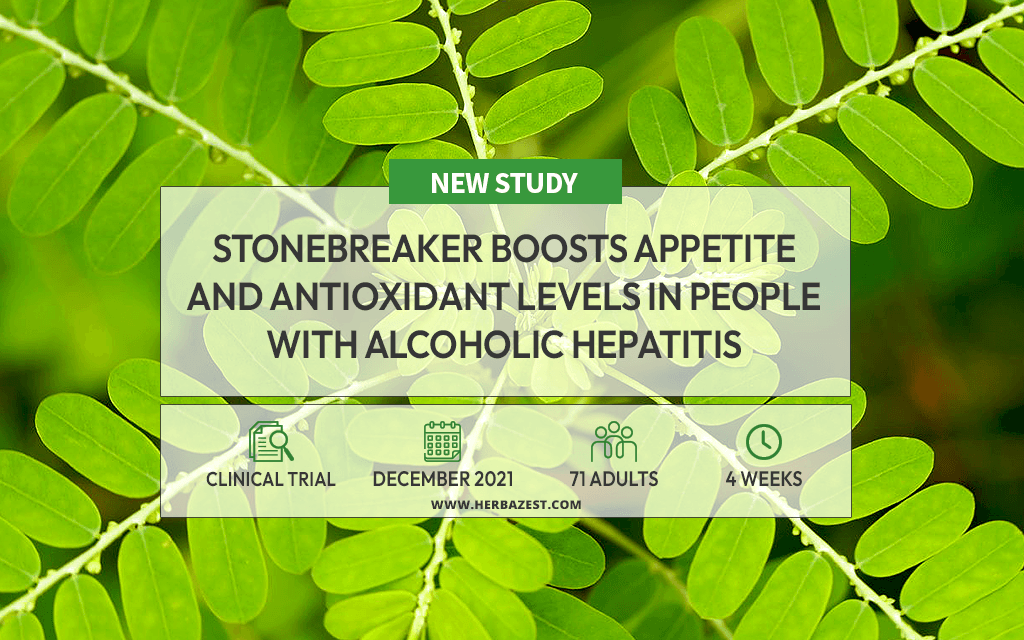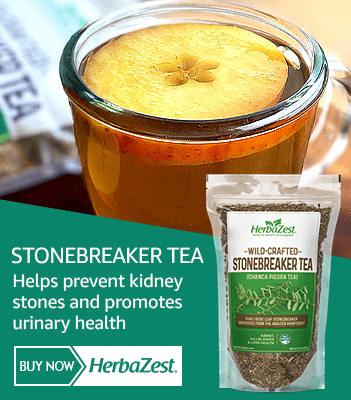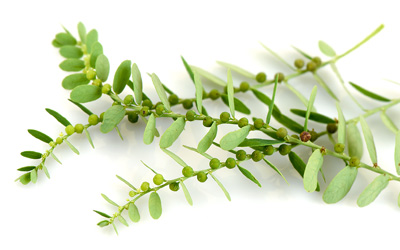Alcoholic hepatitis is a serious liver condition linked to high morbidity and mortality rates worldwide, mainly due to chronic alcohol use.1 Despite its significant impact, current treatments have limitations, leading to exploration of alternative therapies. Stonebreaker, a South American herb known for its kidney stone benefits, is now being studied for its potential in liver disorders.
The Study
This phase 2 clinical trial was conducted to evaluate the effects of stonebreaker in alcoholic hepatitis. It included a well-defined intervention group of 71 patients with mild to moderate alcoholic hepatitis receiving stonebreaker extract capsules and a control group receiving a placebo for four weeks.
Researchers wanted to see if taking stonebreaker could help improve liver health in the participants. They measured liver enzymes (AST and ALT), alkaline phosphatase (ALP), and other markers like bilirubin and cholesterol. They also assessed stonebreaker's effects on antioxidant levels in the body.
The Results
After 4 weeks of intervention, patients in the intervention group demonstrated a notable increase in total antioxidant levels, indicating the stonebreaker's potential to combat oxidative stress, which is a common feature in liver diseases.
Additionally, stonebreaker exhibited significant appetite-stimulating effects compared to the placebo group, addressing a critical aspect of liver health management.
Furthermore, while the treatment did not lead to significant improvements in liver function parameters compared to placebo, there were encouraging trends observed. Liver enzyme levels, though not reaching statistical significance, showed a tendency towards normalization in the stonebreaker group.
Moreover, there were no serious adverse events reported during the clinical trial. The observed mild gastrointestinal symptoms were manageable and did not warrant treatment discontinuation.
What Does this Mean?
The findings of this study underscore the potential of stonebreaker as a complementary therapy for alcoholic hepatitis, showcasing its antioxidant and appetite-stimulating effects.
While the improvements in liver function parameters were not statistically significant, the positive trends suggest the herb's potential to contribute to liver function restoration in alcoholic hepatitis patients. Further trials should delve deeper into optimizing dosage, duration, and combination therapies to harness the full therapeutic potential of stonebreaker in liver disorders.
Other herbs with potent hepatoprotective properties are licorice, turmeric, milk thistle, and artichoke.
Sources
- Indian Journal of Pharmacology, Efficacy of Phyllanthus niruri on improving liver functions in patients with alcoholic hepatitis: A double-blind randomized controlled trial, 2021
Footnotes:
- BMC Public Health. (2023). Global prevalence, incidence, and outcomes of alcohol related liver diseases: a systematic review and meta-analysis. Retrieved April 1, 2024, from https://bmcpublichealth.biomedcentral.com/articles/10.1186/s12889-023-15749-x







